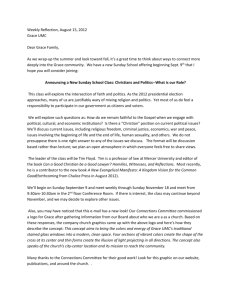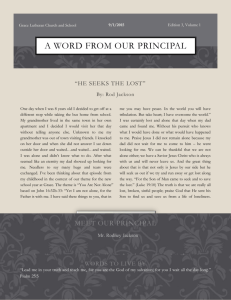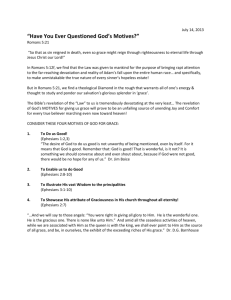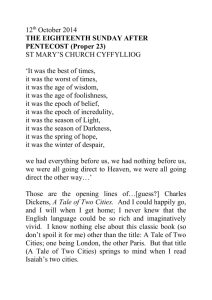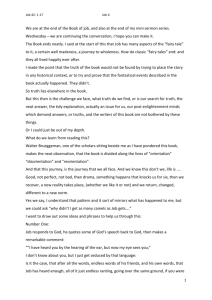THE CITY CHURCH CANTERBURY
advertisement
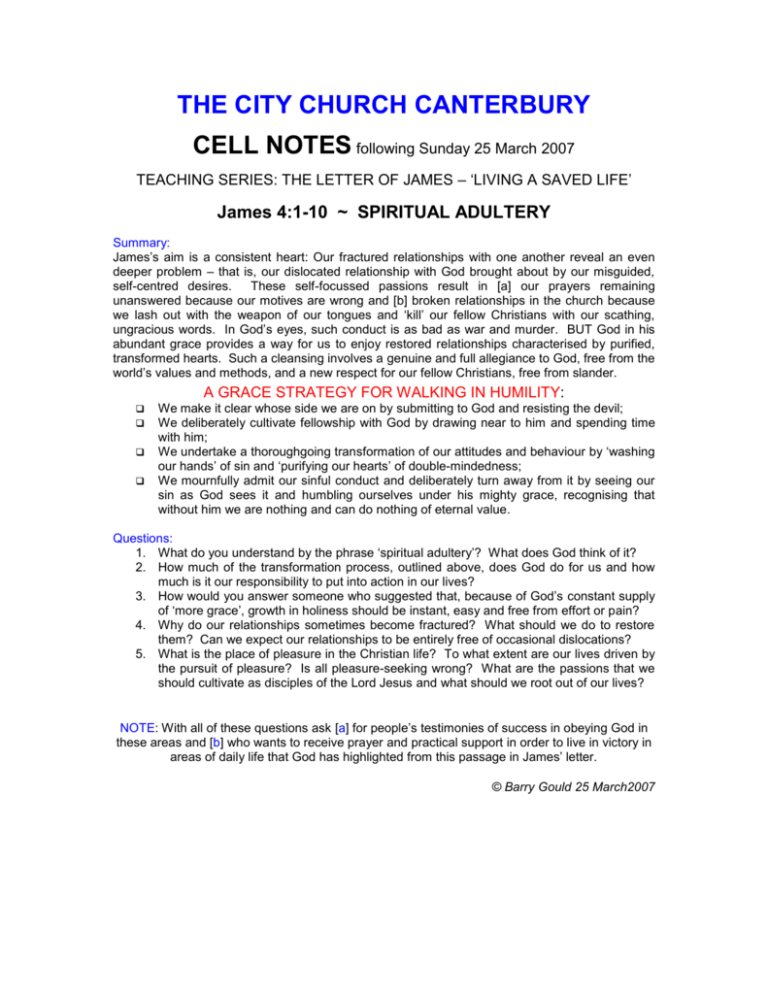
THE CITY CHURCH CANTERBURY CELL NOTES following Sunday 25 March 2007 TEACHING SERIES: THE LETTER OF JAMES – ‘LIVING A SAVED LIFE’ James 4:1-10 ~ SPIRITUAL ADULTERY Summary: James’s aim is a consistent heart: Our fractured relationships with one another reveal an even deeper problem – that is, our dislocated relationship with God brought about by our misguided, self-centred desires. These self-focussed passions result in [a] our prayers remaining unanswered because our motives are wrong and [b] broken relationships in the church because we lash out with the weapon of our tongues and ‘kill’ our fellow Christians with our scathing, ungracious words. In God’s eyes, such conduct is as bad as war and murder. BUT God in his abundant grace provides a way for us to enjoy restored relationships characterised by purified, transformed hearts. Such a cleansing involves a genuine and full allegiance to God, free from the world’s values and methods, and a new respect for our fellow Christians, free from slander. A GRACE STRATEGY FOR WALKING IN HUMILITY: We make it clear whose side we are on by submitting to God and resisting the devil; We deliberately cultivate fellowship with God by drawing near to him and spending time with him; We undertake a thoroughgoing transformation of our attitudes and behaviour by ‘washing our hands’ of sin and ‘purifying our hearts’ of double-mindedness; We mournfully admit our sinful conduct and deliberately turn away from it by seeing our sin as God sees it and humbling ourselves under his mighty grace, recognising that without him we are nothing and can do nothing of eternal value. Questions: 1. What do you understand by the phrase ‘spiritual adultery’? What does God think of it? 2. How much of the transformation process, outlined above, does God do for us and how much is it our responsibility to put into action in our lives? 3. How would you answer someone who suggested that, because of God’s constant supply of ‘more grace’, growth in holiness should be instant, easy and free from effort or pain? 4. Why do our relationships sometimes become fractured? What should we do to restore them? Can we expect our relationships to be entirely free of occasional dislocations? 5. What is the place of pleasure in the Christian life? To what extent are our lives driven by the pursuit of pleasure? Is all pleasure-seeking wrong? What are the passions that we should cultivate as disciples of the Lord Jesus and what should we root out of our lives? NOTE: With all of these questions ask [a] for people’s testimonies of success in obeying God in these areas and [b] who wants to receive prayer and practical support in order to live in victory in areas of daily life that God has highlighted from this passage in James’ letter. © Barry Gould 25 March2007





